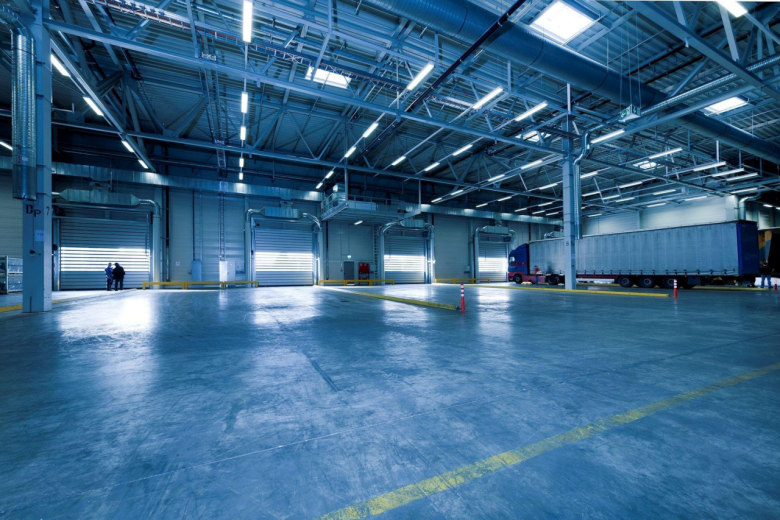
You may require a significantly larger location as your business grows or to manufacture and store items as your firm grows. You could require warehouse or industrial space in this situation.
Industrial properties include manufacturing buildings, warehouses, and multipurpose areas. These areas can be utilized for distribution, fulfillment, storage, or the manufacture of products or items.
Here are some suggestions for searching for industrial space, along with information on what to look for if you want to rent a small warehouse in Dublin, OH., and how to assess your needs for space and leasing, and the fundamentals of commercial industrial leases.
The kind of property that best suits your needs as a business ultimately depends on the kind of your enterprise. Generally speaking, industrial property belongs to one of three subsets:
● Space for warehouses and manufacturing
● Flex space or mixed-use real estate (which combines manufacturing and warehousing)
Every kind of industrial area has a distinct function. The primary functions of a warehouse are product distribution and storage. Warehouses used for product distribution that are not involved in construction or assembly are called distribution centers.
It could be necessary to employ warehouse equipment to package and label goods in order to get them ready for transportation.
A manufacturing space, on the other hand, is where things are made, assembled, or constructed. Depending on your production requirements, this sort of area can require unique zoning or construction, such reinforced flooring and high-volume electricity sources or a specific height of the ceiling.
You may take care of your manufacturing and warehousing requirements in one location by combining a flex space, often known as a mixed-use property. It is therefore up to you to decide if you are searching for a facility to produce your goods, store them, package and send them, or all three.
From the convenience of your home or office, you can easily begin your search for a commercial or warehouse property using online property databases. Once you've determined what kind of property would work best for your company, you may evaluate properties that fulfill your exact requirements using internet databases.
Since each commercial lease may be customized for a specific firm, they may be more complicated than residential leases. Additionally, there is a lot more negotiating involved than with a normal residential lease. There are two types of commercial leases: net and gross leases.
The increased monthly rent paid by the renter pays for utilities, maintenance, insurance, taxes, and other costs. This is the simplest choice since the landlord will take care of the building, you can concentrate on running your business, and you just need to make one payment.
You should find out what kinds of maintenance and cleaning services are offered (as well as how frequently) and if you'll be charged extra for using utilities over a certain threshold.
Each month, the renter pays the base rent. In addition, depending on what portion of the structure they occupy, the renter pays a pro rata part of the other construction costs. The most prevalent kind of net contract is known as a "triple net" lease, in which you are responsible for your pro rata portion of common area upkeep, insurance, and property taxes.
Along with the rent, you are also responsible for paying for utilities, cleaning services, and any other costs related to using the space. Due to the savings on operational costs, this may wind up being less expensive; nevertheless, the monthly rent may vary and be more difficult to budget for.
The most common kind of business lease is a triple net lease, but be sure to thoroughly review the conditions as they are often favorable to the landlord.
Get a preliminary (blank) version of the lease from the owner if you believe you might wish to seek an agreement on a certain property. In this manner, you are able to compile a list of all the terms of the document and choose what kind of terms would be appropriate for you.
Typical clauses in business leases include the following:
● The monthly rent total and the rent per square meter
● Timetable for payments
● Deposit for security
● Lease duration (many business leases have three-year or longer durations)
● Any increases in rent
● Insurance, taxes, utilities, and maintenance (net or gross lease)
● Who covers any renovations made to the property?
● Who handles the repairs?
● Is it okay to sublease (https://www.tenantresourcecenter.org/all_about_subletting)?
● Exist any liens on inventory? States differ in this.
● Tenant upgrades, which often increase your rent every square foot, include painting, dividing space for an office, and other physical modifications to the property.
● Choices for Extension
● Clauses about breach of lease (for both the landlord and you)
● Arbitration provisions
Given the potential complexity of commercial lease specifics, have a look at this SBA page for further information. To make sure that every one of your liberties are safeguarded, experts advise going over business leases from an industrial real estate lawyer before signing. Since a commercial lease is a significant financial commitment, you should make sure you comprehend the terms of the agreement before signing on the dotted line.
